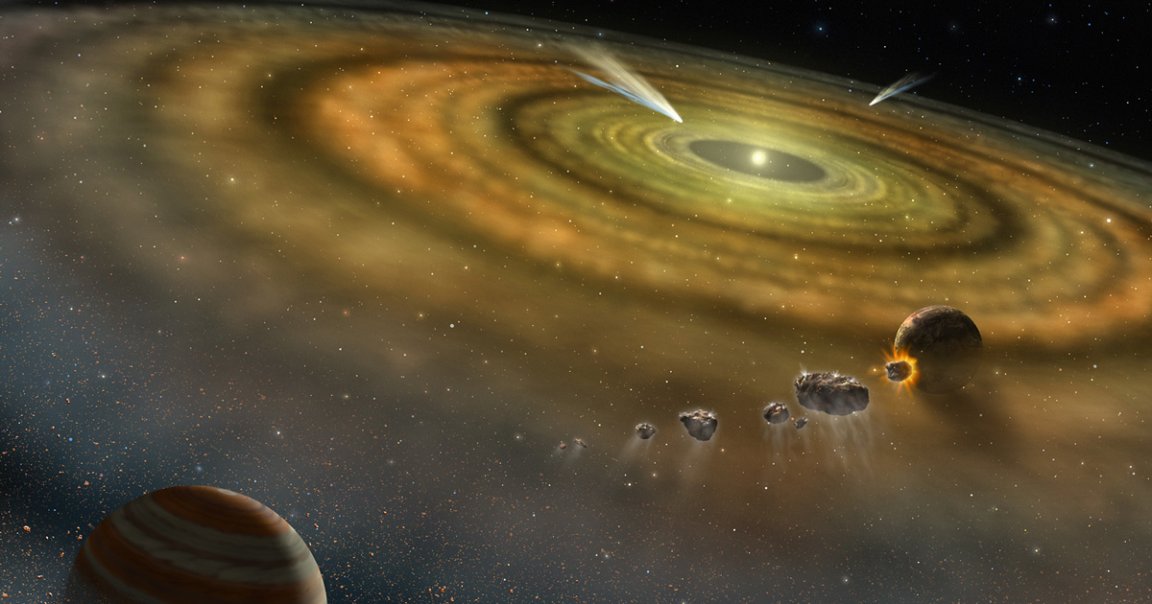
Rush Job
Compared to the rest of the universe, our solar system is just a teenager — it formed 4.5 billion years ago compared to the universe’s 13.8 billion years. But more shocking is how quickly our entire star system took shape in the first place.
According to research published Friday in the venerable journal Science based on a new analysis of ancient meteorites, it took less than 200,000 years for the whole Sun and solar system to form. By comparison, scientists believe the human species has been walking the Earth for 100,000 years longer than that — a comparison that shows just how quickly our star and planets came together.
Fast-Forward
The new timeframe is significantly shorter than what astronomers expected. Based on studies of similar star systems, scientists expected the process to have taken 1 to 2 million years.
“Previously, the timeframe of formation was not really known for our solar system,” lead study author and Lawrence Livermore National Laboratory cosmochemist Greg Brennecka said in a press release. “This work shows that this collapse, which led to the formation of the solar system, happened very quickly, in less than 200,000 years.”
Like Clockwork
To arrive at the new numbers, Brennecka and his team dated different parts of ancient meteorites, like researchers date different layers of rock on Earth, and found sections linked to the process of star assembly that formed over 200,000 years.
“If we scale this all to a human lifespan, formation of the solar system would compare to pregnancy lasting about 12 hours instead of nine months,” Brennecka said. “This was a rapid process.”
READ MORE: Solar system formed in less than 200,000 years [Lawrence Livermore National Laboratory]
More on the solar system: Harvard Astronomers Propose That Our Star System Used to Be Binary